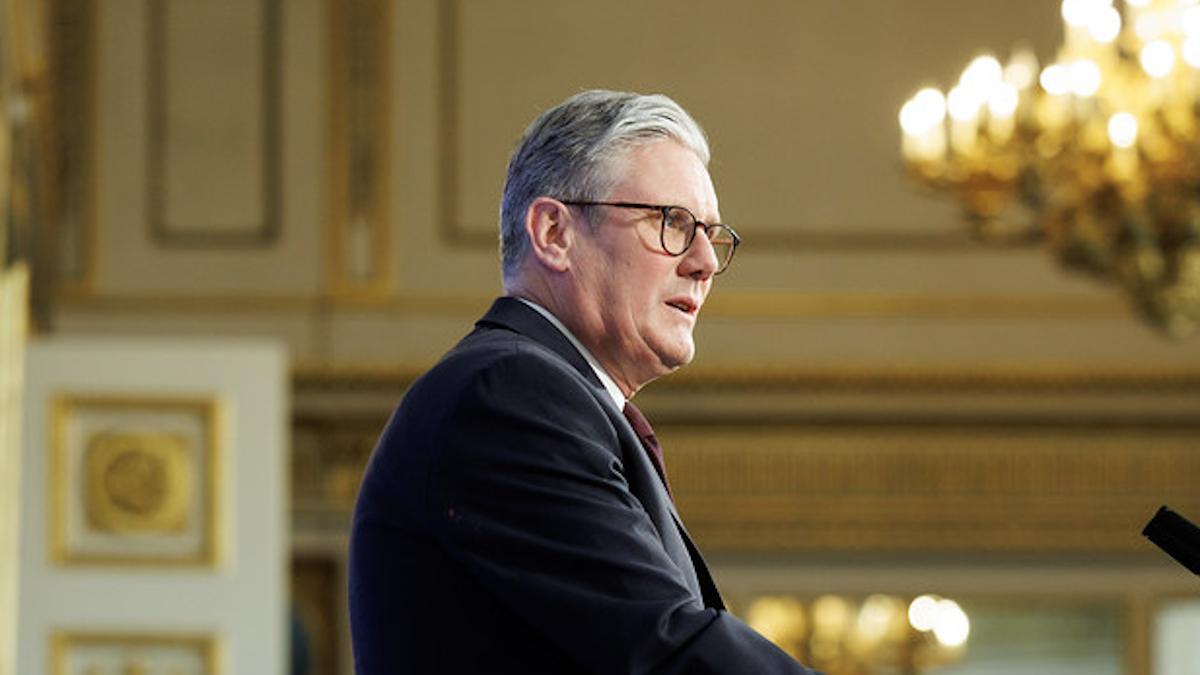The NHS 10 Year Plan arrives – what are the highlights?

UK Prime Minister Sir Keir Starmer.
After months of preparation and a drip-feed of some of its key features, the UK government has raised the curtain on its new 10-year plan for the NHS.
The three over-arching themes are already well known – shifting care from hospital to community, analogue to digital, and from sickness to prevention – and now the detail is available to be read and reviewed in the new 168-page document (PDF).
"The NHS is at a turning point in its history," said Prime Minister Sir Keir Starmer today at a health centre in Stratford, east London, alongside Health and Social Care Secretary Wes Streeting and Chancellor Rachel Reeves.
"We're an older society now," he continued. "Disease has changed. Conditions are chronic, they are long-term, they need to be managed. And that means we need to reform the NHS to make it fit for the future."
The plan includes measures to boost vaccinations, screening, and diagnosis to prevent disease and pick up health issues more quickly, making weight-loss services available through pharmacies, and measures to make supermarket foods healthier.
Starmer also highly the launch of a network of community health centres to provide a Neighbourhood Health Service, reported this morning, that aims to end the "status quo of hospital by default."
On digitalisation, the aim is to make the NHS App "like having a doctor in your pocket. Providing you with 24-hour advice, seven days a week. An NHS that really is always there when you need it."
Along with services like booking appointments, ordering prescriptions, and connecting patients with support groups, the app will also help deliver the health department's objective of a single patient record for everyone in the UK that can be shared across the NHS and in time include a 'HealthStore' of digital tools to manage or treat conditions.
There will also be an attempt to end the '8am scramble' for GP appointments by training thousands more GPs and building online advice into the NHS App, introduced contracts to encourage GPs to work over larger geographies, and increase the role of community pharmacy in the management of long-term conditions.
Underpinning the new-look NHS will be a new operating model in which decision-making and power will be shifted from the government and civil service to local healthcare providers, staff and citizens, with NHS England absorbed into the Department of Health and Social Care (DHSC) with a headcount reduction of 50%.
There's a lot to digest, but some eye-catching elements of the plan include: A trial of patient power payments, in which patients are contacted after care and given a say on whether the full payment for the costs of their care should be released; feeding back patient-reported outcomes into the NHS App to help people chose providers; bringing wearable devices into routine use by 2035; the creation of a single national formulary for medicines within two years to streamline procurement; and steps to remove recommendations for drugs which offer poor value for money.
Earlier revelations in the plan included the creation of a new joint MHRA/NICE taskforce to cut review times for new medicines, an 'innovator passport' to speed the NHS rollout of medtech, and a push to widen healthcare recruitment in the UK to reduce reliance on workers from overseas.
The PM's upbeat assessment of the merits of the plan was challenged by Thea Stein, chief executive of health think tank Nuffield Trust, who said it contains "a litany of initiatives and the belief that they will be the NHS's saviour, with little detail on how the ailing health service is to deliver these changes."
That said, Stein welcomed the plan's ambition to go further than previous attempts to put patients at the heart of care, particularly the promised upgrades to the NHS App which she said could be "a real game changer."
She warned however that "however good the NHS app gets, it will be down to NHS staff to deliver this plan. It is positive to see recognition of how overburdened and overwhelmed many of those staff currently feel. But new neighbourhood health teams still seem to rely on the NHS standby of reorganising structures, instead of trusting the health service's workers."












